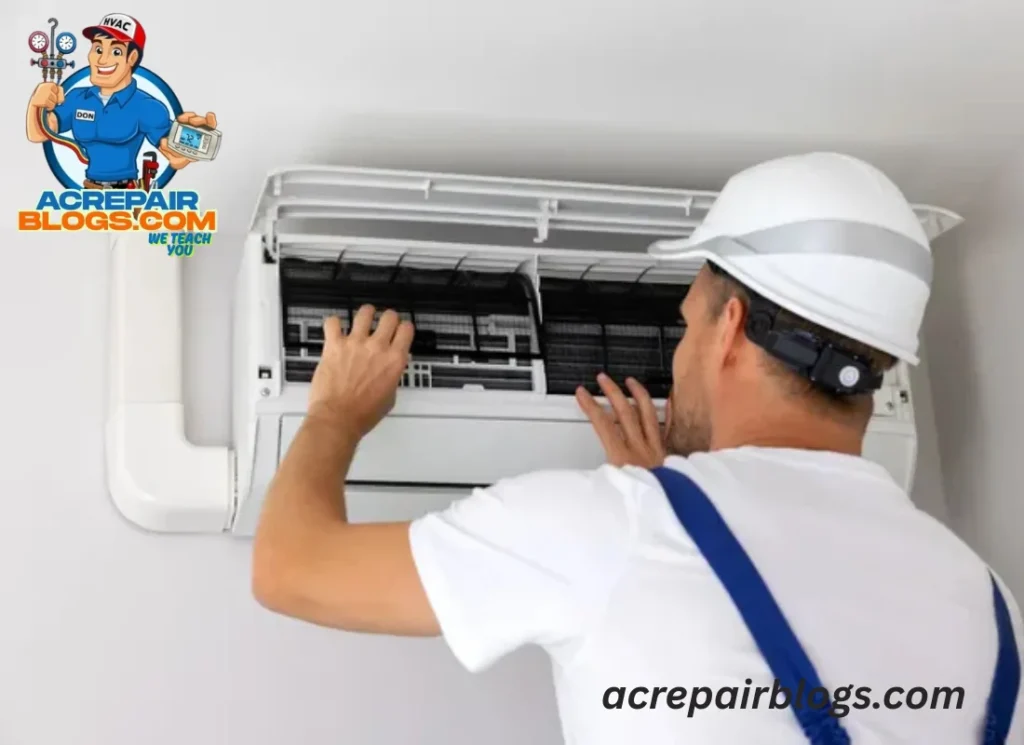A Complete Guide on How AC Filters Improve Indoor Air Quality
Introduction
Air quality is the most important point. At the same time, we think about comfort in our house. This is where clean air solutions like AC filters play a vital role.
Modern air conditioners do not just cool your home; they act as the first line of defense against indoor pollutants such as dust, pollen, pet dander, and even harmful microbes. But here is the catch: the effectiveness of this defense largely depends on your AC filters.
- How AC filters improve indoor air quality
- The science behind clean air solutions in HVAC systems
- Different types of filters and which ones are best for your home
- A step-by-step filter maintenance guide
- How cleaner air saves money, improves health, and boosts AC efficiency
Why Indoor Air Quality Should Be Your Priority
- Dust mites and allergens
- Mold spores
- Pet hair and dander
- Bacteria and viruses
- VOCs (volatile organic compounds from cleaning products, paints, etc.)
- Smoke and cooking odors
The Role of AC Filters in Indoor Air Quality
- Trapping Dust and Allergens: Preventing harmful particles from recirculating in your living space.
- Protecting the HVAC System: Stopping dirt buildup on coils and motors, which maintains efficiency.
- Improving Breathability: Ensuring fresh, clean air circulates throughout your home.
A well-maintained AC filter can capture up to 99% of airborne particles, making it one of the most effective and affordable clean air solutions available.
Signs It’s Time to Replace Your AC Filter
- Increased dust around your home
- Allergy symptoms worsening
- Reduced airflow from vents
- Rising energy bills
- Musty odors when the AC is running
👉 Rule of thumb: Replace filters every 30–90 days depending on type, usage, and household factors (pets, smokers, etc.).
How Clean Air Solutions Save You Money
- Lower Energy Bills: A clean filter allows smooth airflow, reducing strain on the system.
- Fewer Repairs: Filters prevent dirt from damaging coils and motors.
- Extended HVAC Lifespan: Less wear and tear means your AC lasts longer.
- Healthcare Savings: Fewer allergy or asthma flare-ups lead to lower medical expenses.
Routine AC Filter Care: A Practical Checklist
Monthly
- Inspect the filter for dust buildup.
- Vacuum around air vents.
Every 1–3 Months
- Replace disposable filters (fiberglass/pleated).
- Wash reusable filters (electrostatic).
Seasonally
- Schedule professional HVAC inspection.
- Check ductwork for leaks that allow pollutants in.
AC Filters and Health Benefits
- Allergy Relief: Fewer triggers like pollen and dust.
- Asthma Management: Reduces respiratory irritation.
- Better Sleep: Clean air promotes restful sleep cycles.
- Overall Immunity: Less exposure to pollutants supports stronger health.
How to Choose the Right Filter for Your Home
- MERV Rating (Minimum Efficiency Reporting Value): Higher rating = better filtration. For homes, 8 to 13 MERV is usually ideal.
- Household Needs: Pets, smokers, allergies, or children may require stronger filters.
- System Compatibility: Not all filters fit every HVAC system, check the manual.
- Budget vs Long-Term Savings: Sometimes, paying more upfront saves money long-term.
Looking Ahead: Smart AC Filters and Future HVAC Trends
Technology is evolving very fastly and HVAC trends are changing the game for air quality. Smart AC filters can:
- Alert you when it’s time for a replacement.
- Calculate the air quality in enviornment.
Integrate with smart thermostats for automated clean air solutions.
Conclusion
Your AC is like a small unit and the actual thing. Every breath you and your family take is impacted by the level of cleanliness in your indoor environment, and AC filters stand as the first line of defense against harmful pollutants, allergens, and even microscopic particles you can not see.
When you consistently maintain and upgrade your AC filters, you are not just prolonging the life of your HVAC system; you are investing in your health, your family’s well-being, and the overall cleanliness of your living space. Many homeowners do not realize that symptoms like headaches, fatigue, or frequent sneezing indoors could be linked directly to poor indoor air quality. By choosing the right filter and replacing it on time, you remove one of the biggest hidden causes of indoor discomfort.
